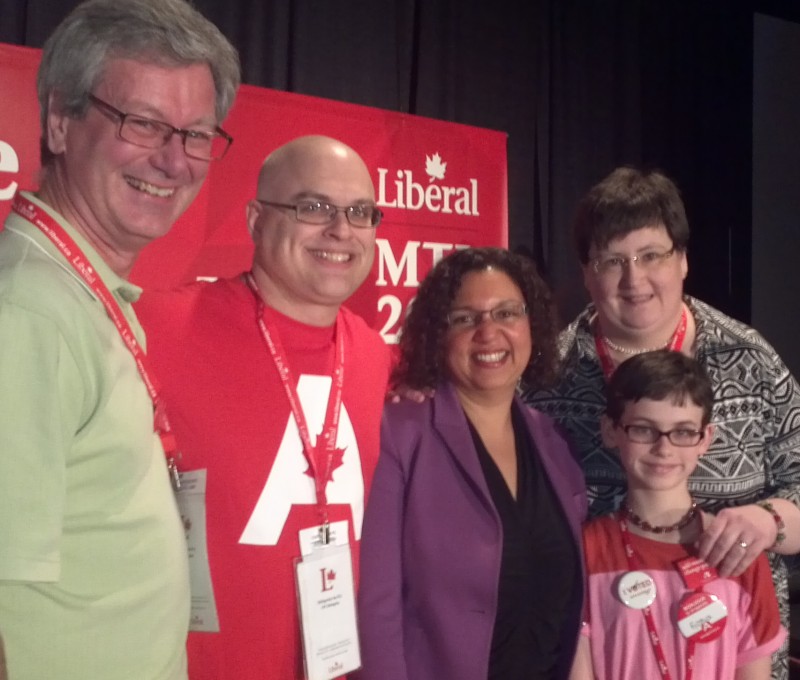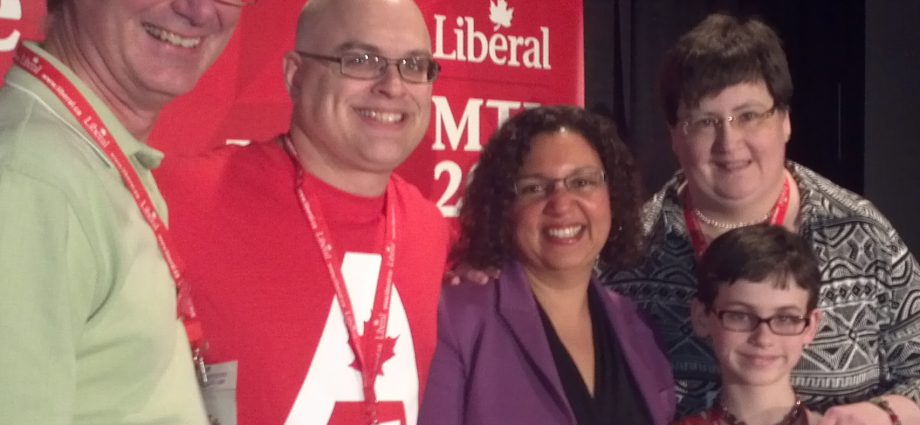 CFN – A major discussion of the biennial Liberal Convention in Montreal was the need for infrastructure, both physical such as rail, human such as education, and services such as health care. Clearly, infrastructure is the critical role of government. Even though the private sector will usually build infrastructure, only government can pool the collective needs and resources of its citizens to plan, fund, and manage infrastructure.
CFN – A major discussion of the biennial Liberal Convention in Montreal was the need for infrastructure, both physical such as rail, human such as education, and services such as health care. Clearly, infrastructure is the critical role of government. Even though the private sector will usually build infrastructure, only government can pool the collective needs and resources of its citizens to plan, fund, and manage infrastructure.Cornwall’s Bernadette Clement hosted a panel of Mayors from Halifax, Montreal, Oakville, and Waterloo to discuss the issue of infrastructure. They addressed the infrastructure deficit in Canada, the result of a decade of negligence in funding for upgrades, replacements, and growth. Just think of falling bridges in Montreal, sewer overflows in some cities, grid lock in Toronto, insufficient public transit in Montreal and other growing cities.
Some may argue that infrastructure is a provincial jurisdiction and the federal government should merely get out of the way. Infrastructure is a shared jurisdiction on two counts. For starters, rail, air, and sea transportation are specifically federal jurisdiction. Imagine the Champlain bridge in Montreal. It is federal jurisdiction as it crosses the Seaway but connects to a provincial highway at both ends, which connects to municipal roads at each access ramp. Secondly, municipalities and provinces come to the federal government for funding on major infrastructure projects thanks to the broad taxation capacity of the federal government. No matter how you look at, the country relies on the federal government for leadership and partnerships in developing infrastructure.
Infrastructure is a three-way partnership between the three levels of government in both planning, collaboration, and funding. The Mayors expressed appreciation for the millions announced in the recent Harper budget, but were very concerned because it is based on applications for projects which is fraught by competition between cities, partisan influence, political decisions for photo opportunities, costly short term plans, and federal prerogatives instead of municipal priorities. The cities called for long term stable and predictable funding, such as Paul Martin’s guaranteed and permanent portion of the federal gas tax.
The mayors especially called for recognition and respect by the federal government. Cities are not the children of the provinces, or a subordinate tier of government as we commonly believe. They are a construct of the country, just like the provincial and federal governments, each with their respective jurisdiction, obligations, and governance. One is not beholden to the other. Therefore, cities should be at the discussion table on par with the federal and provincial governments to discuss joint needs and strategies. They are particularly upset at the Harper government for meeting the provinces only once in 10 years, and not since 2008. They call on the federal government for recognition and dialog.
The mayors also challenged the current three-tier tax system which was created a century ago but is no longer relevant or practical. The citizen pays taxes to three tiers of government, but only 8% of all taxes collected go to municipalities. Yet, the citizen obtains most day-to-day services from the municipality in roads, water, sewer, waste management, public transit, police services, parks and recreation, snow removal, etc… For lack of revenues, they end up calling on the federal and provincial governments for funding. They call for a new tax deal with the federal and provincial governments to address the long term infrastructure deficit.
In this photo, Tom Manley joins Bernadette Clement, who hosted the Municipal workshop, with Jamie and Tracy Labonté and their daughter Fiona from Cornwall.


A new tax deal actually makes sense. Of course I doubt we would see less administration that gobbles up municipal budgets, or some sharing of fire/ems/police. Conservation authorities, how we do anything health and having 4 school boards need to be addressed. So, how can 3 level of governments put silo thinking aside and make this work?
Four school boards is a bit much. Three levels of government. Trying to get four school boards to amalgamate into one or two won’t happen. No one will want to give up control or be consolidated into another. Three levels of government agreeing?? Won’t hasppen. Hard enough to get two levels to agree. You think three levels will agree? Nope.
Hugger 1, what makes amalgamation of schools boards even more difficult is law. Catholic and French to be exact. I would need to look further into the http://www.oneschoolsystem.org/ site, but education and health costs need a large overhaul, soon.